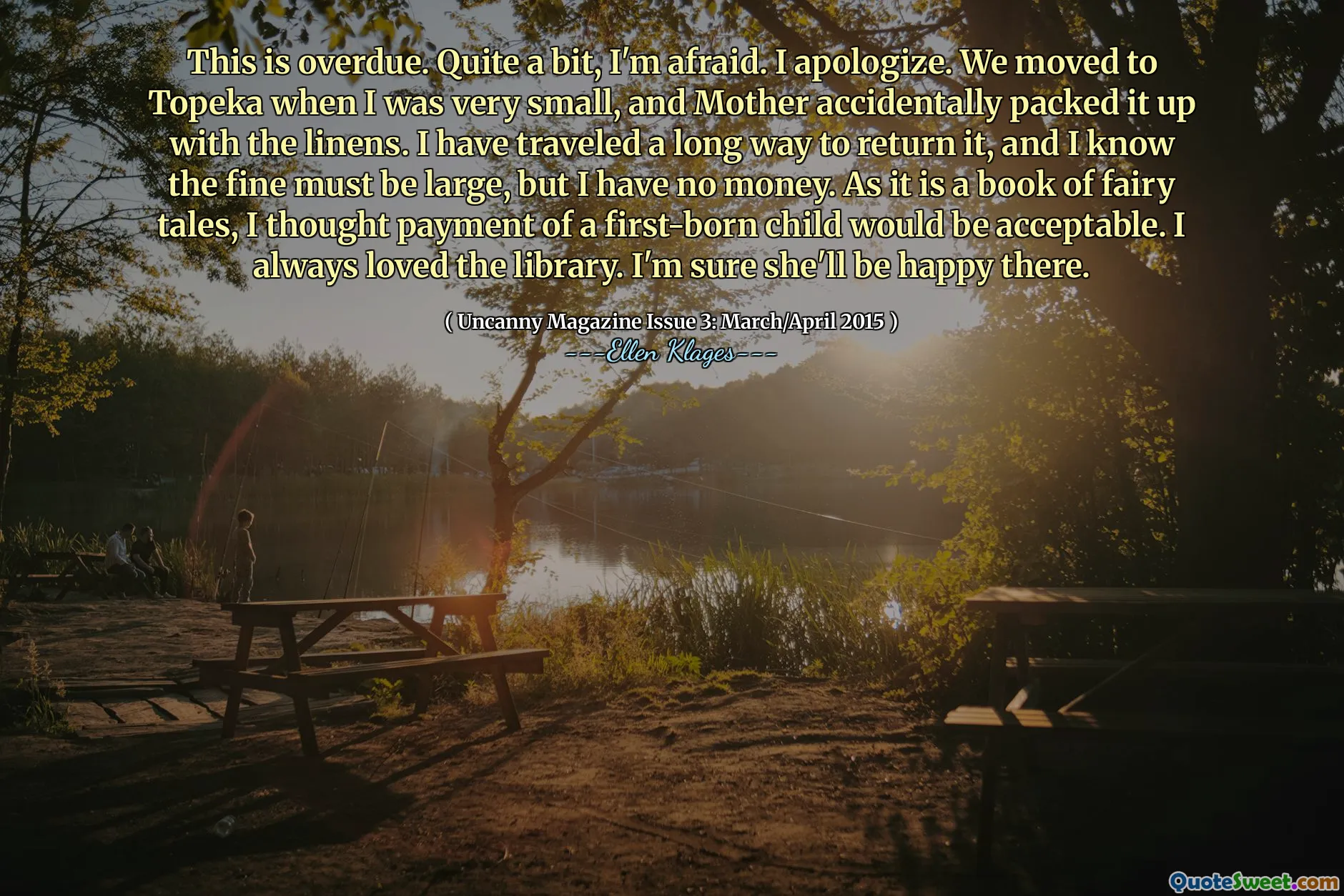
This is overdue. Quite a bit, I'm afraid. I apologize. We moved to Topeka when I was very small, and Mother accidentally packed it up with the linens. I have traveled a long way to return it, and I know the fine must be large, but I have no money. As it is a book of fairy tales, I thought payment of a first-born child would be acceptable. I always loved the library. I'm sure she'll be happy there.
This quote weaves a charming and whimsical narrative that blends nostalgia, innocence, and a touch of fantastical humor. The narrator's acknowledgment of an overdue item, perhaps a treasured book, transforms a mundane library fine into an imaginative story. The mention of moving to Topeka as a child and accidentally packing the book with linens humanizes the speaker, evoking a sense of innocence and unintentional responsibility. Their long journey to return the item highlights a deep respect and affection for the library, almost as if returning a prized possession from a beloved friend or family member. The exaggerated gesture of offering a first-born child as payment infuses the story with fairy-tale magic, referencing classic folklore where absurd and fantastical exchanges are commonplace. It also reveals a heartfelt longing to do what is right, even in the face of financial inability. This story resonates because it taps into universal themes of love for literature, childhood wonder, and the longing to preserve memories connected to books and stories. The act of imagining a library as a welcoming home for the returned book epitomizes the sentiment that books are more than objects—they are vessels of stories, comfort, and imagination that deserve care. Overall, that simple narrative encourages us to see the world through a lens of whimsy and empathy, cherishing the stories we hold and the connections they forge across time and experience.






